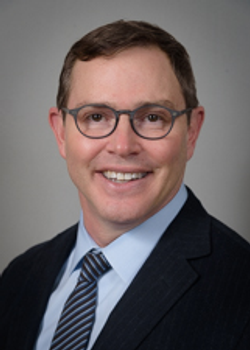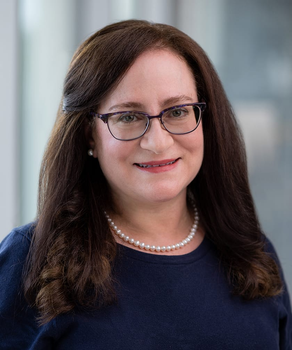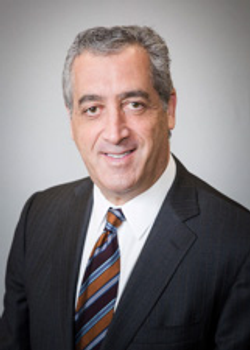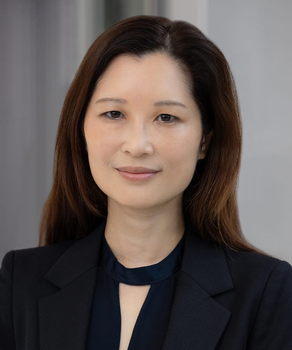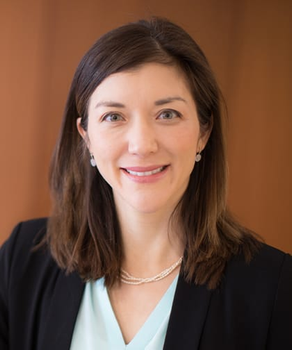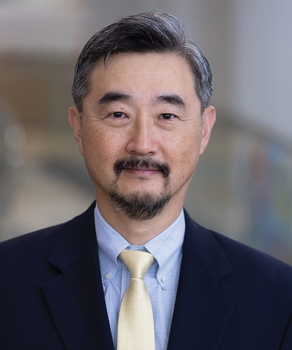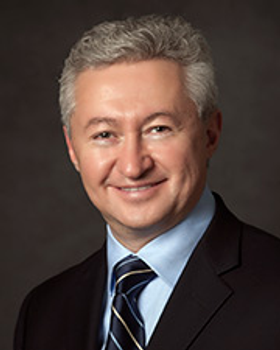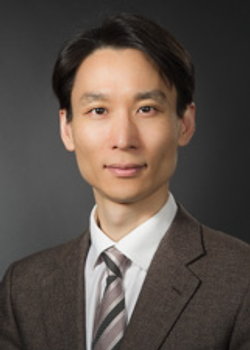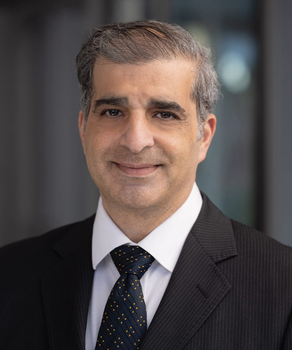Refine by health condition
- Age-Related Macular Degeneration (ARMD)
- Amblyopia
- Blepharitis
- Cataract
- Conjunctivitis (Pink Eye)
- Diabetic Retinopathy
- Dry Eye Syndrome
- Glaucoma
- Keratomalacia
- Retinitis Pigmentosa
- Retinal Artery Occlusion
- Strabismus
- Uveitis
Filters
Ophthalmologist Search Results
MediFind found 1182 specialists near Bronx, NY
Trustees Of Columbia University In The City Of New York
Brian Marr is an Ophthalmologist in New York, New York. Dr. Marr is highly rated in 8 conditions, according to our data. His top areas of expertise are Retinoblastoma, Melanoma of the Eye, Metastatic Uveal Melanoma, Uveal Melanoma, and Vitrectomy.
Vitreous Retina Macula Consultants Of New York
Dr. Yannuzzi has made numerous innovative and lasting contributions in imaging, drug development, and therapeutic modalities. He was the first to use oral non-steroid anti-inflammatory medication for the treatment of cystoid macular edema and developed an eye drop to treat this condition. He has described new diseases as well as new associations and manifestations of established entities and photosensitization.He has published over 400 scientific papers and 13 books, which have earned him respect and admiration in the ophthalmic-retinal community and retina specialists internationally. He is well recognized as a devoted and excellent educator, a superb clinical diagnostician, and a prolific organizer of retinal meetings worldwide. Dr. Yannuzzi is highly rated in 25 conditions, according to our data. His top areas of expertise are Central Serous Chorioretinopathy, Late-Onset Retinal Degeneration, Age-Related Macular Degeneration (ARMD), Adult-Onset Vitelliform Macular Dystrophy (AVMD), and Vitrectomy.
New York University
Joseph Panarelli is an Ophthalmologist in New York, New York. Dr. Panarelli is highly rated in 5 conditions, according to our data. His top areas of expertise are Glaucoma, Ocular Hypertension (OHT), Pigment-Dispersion Syndrome, Trabeculectomy, and Vitrectomy. Dr. Panarelli is currently accepting new patients.
Vitreous Retina Macula Consultants Of New York(Downtown)
Dr. Spaide specializes in diseases of the retina and vitreous. His particular interests include retinal surgery, Macular Degeneration, Macular Holes, Macular Pucker, Diabetic Retinopathy, and intraocular inflammation. He has published more than 300 articles and 50 book chapters and 9 books about the diagnosis and treatment of Retinal Diseases. He has given lectures around the world.He has a remarkable number of “firsts” in retinal diseases including the development of autofluorescence imaging using a fundus camera and the first practical method to image deeper structures in the eye with optical coherence tomography. These imaging methods now are used around the world. He has described many new findings and diseases of the eye and helped develop many novel treatments. He has developed numerous surgical instruments that were named after him and holds patents for ophthalmic inventions.He is the recipient of the Richard and Hilda Rosenthal Foundation Award in the Visual Sciences, the Senior Honor Award from the American Society of Retinal Surgeons, and the Senior Achievement Award from the American Academy of Opthalmology and the Prix Soubrane de la Recherche en Ophthalmologie, Award of Merit from the Retina Society, the Henkind Award, Coscas Award, Nataraja Pillai Award, W. Richard Green MD Award, George Theodossiadis Award, Founders Award, American Society of Retinal Surgeons, Life Achievement Honor Award, and the American Academy of Ophthalmology. Dr. Spaide is highly rated in 16 conditions, according to our data. His top areas of expertise are Age-Related Macular Degeneration (ARMD), Late-Onset Retinal Degeneration, Geographic Atrophy, Central Serous Chorioretinopathy, and Vitrectomy.
Vitreous Retina Macula Consultants Of New York
Dr. Klancnik utilizes all forms of ophthalmic imaging including fluorescein angiography, indocyanine green angiography, as well as noninvasive forms of imaging such as spectral domain optical coherence tomography, autofluorescence photography, and ultrasonography.Dr. Klancnik is a magna cum laude graduate of Yale University. He earned his medical degree from Jefferson Medical College of Thomas Jefferson University and was elected to the Alpha Omega Alpha and Hobart Amory Hare honor medical societies. He completed his internship at the Lankenau Hospital and his ophthalmology residency at Wills Eye Hospital. He completed his medical and surgical vitreoretinal fellowship at Manhattan Eye, Ear & Throat Hospital and Columbia University. He is an Assistant Professor of Clinical Ophthalmology at New York University School of Medicine.Dr. Klancnik is a member of numerous medical organizations including the American Academy of Ophthalmology, American Society of Retinal Specialists, and Association for Research in Vision and Ophthalmology. He is an author of numerous peer-reviewed journal articles and book chapters and has presented at scientific meetings nationally and internationally. He is active in numerous clinical trials as principle or sub-investigator and serves as a reviewer for several ophthalmology journals. Dr. Klancnik is highly rated in 13 conditions, according to our data. His top areas of expertise are Central Serous Chorioretinopathy, Late-Onset Retinal Degeneration, Age-Related Macular Degeneration (ARMD), and Retinal Vein Occlusion.
New York Eye Surgery Associates PLLC
Nathan Radcliffe is an Ophthalmologist in Bronx, New York. Dr. Radcliffe is highly rated in 36 conditions, according to our data. His top areas of expertise are Glaucoma, Ocular Hypertension (OHT), Cataract, Trabeculectomy, and Cataract Removal. Dr. Radcliffe is currently accepting new patients.
Trustees Of Columbia University In The City Of New York
Scott Brodie is an Ophthalmologist in New York, New York. Dr. Brodie is highly rated in 15 conditions, according to our data. His top areas of expertise are Retinoblastoma, Retinitis Pigmentosa, Retinopathy Pigmentary Mental Retardation, Cone-Rod Dystrophy, and Vitrectomy.
Daniel Laroche is an Ophthalmologist in New York, New York. Dr. Laroche is highly rated in 12 conditions, according to our data. His top areas of expertise are Glaucoma, Hyphema, Ocular Hypertension (OHT), Trabeculectomy, and Cataract Removal. Dr. Laroche is currently accepting new patients.
Quan Hoang is an Ophthalmologist in New York, New York. Dr. Hoang is highly rated in 9 conditions, according to our data. His top areas of expertise are Nearsightedness, Age-Related Macular Degeneration (ARMD), Late-Onset Retinal Degeneration, Vitrectomy, and Cataract Removal.
Trustees Of Columbia University In The City Of New York
Aakriti Shukla is an Ophthalmologist in New York, New York. Dr. Shukla is highly rated in 7 conditions, according to our data. Her top areas of expertise are Glaucoma, Ocular Hypertension (OHT), Hyphema, Trabeculectomy, and Cataract Removal.
Trustees Of Columbia University In The City Of New York
Carlos De Moraes is an Ophthalmologist in New York, New York. Dr. De Moraes is highly rated in 4 conditions, according to our data. His top areas of expertise are Ocular Hypertension (OHT), Glaucoma, Pigment-Dispersion Syndrome, Trabeculectomy, and Vitrectomy.
Dana Blumberg is an Ophthalmologist in New York, New York. Dr. Blumberg is highly rated in 4 conditions, according to our data. Her top areas of expertise are Glaucoma, Ocular Hypertension (OHT), Pigment-Dispersion Syndrome, Cataract, and Trabeculectomy.
Philip Ferrone is an Ophthalmologist in Elmhurst, New York. Dr. Ferrone is highly rated in 23 conditions, according to our data. His top areas of expertise are Retinal Detachment, Late-Onset Retinal Degeneration, Age-Related Macular Degeneration (ARMD), Coats Disease, and Vitrectomy.
Kim S. Landzberg, MD
Kim Landzberg is an Ophthalmologist in Riverdale, New York. Dr. Landzberg is highly rated in 12 conditions, according to our data. Her top areas of expertise are Glaucoma, Cataract, Allergic Conjunctivitis, and Conjunctivitis (Pink Eye).
Paul Finger is an Ophthalmologist in New York, New York. Dr. Finger is highly rated in 11 conditions, according to our data. His top areas of expertise are Melanoma of the Eye, Metastatic Uveal Melanoma, Uveal Melanoma, Iridectomy, and Vitrectomy.
Montefiore Medical Center
Joann Kang, MD, is Director, Cornea and Refractive Surgery and Associate Professor, Ophthalmology & Visual Sciences at Montefiore Einstein. A well-recognized physician and surgeon, Dr. Kang is devoted to patient care, surgery, research and teaching. Her clinical and surgical expertise includes cataract surgery, full and partial thickness corneal transplantation, ocular surface surgery/reconstruction, minimally invasive glaucoma surgery (MIGS) and laser vision correction such as laser-assisted in-situ keratomileusis (LASIK) and photorefractive keratectomy (PRK).Dr. Kang received her Bachelor of Science from Cornell University. She then pursued her Doctorate in Medicine at Columbia University, Vagelos College of Physicians and Surgeons. After completing her transitional medicine internship at Maimonides Medical Center, she completed her three-year ophthalmology residency at Illinois Eye and Ear Infirmary, University of Illinois at Chicago and was elected chief resident in her final year. Following this, she completed a corneal and external disease fellowship at the New York Eye & Ear Infirmary of Mount Sinai. Dr. Kang is highly rated in 10 conditions, according to our data. Her top areas of expertise are Interstitial Keratitis, Glaucoma, Cataract, Corneal Transplant, and Trabeculectomy.
Northwell Health Physician Partners Ophthalmology At Riverdale
Steven Odrich is an Ophthalmologist in Riverdale, New York. Dr. Odrich is highly rated in 10 conditions, according to our data. His top areas of expertise are Cataract, Glaucoma, Meibomianitis, Dry Eye Syndrome, and Vitrectomy.
Mskcc Surgery Group
David Abramson is an Ophthalmologist in New York, New York. Dr. Abramson is highly rated in 10 conditions, according to our data. His top areas of expertise are Retinoblastoma, Hereditary Retinoblastoma, Melanoma of the Eye, Vitrectomy, and Leg or Foot Amputation.
Montefiore Medical Center
Anne Barmettler, MD, is Director, Plastic and Reconstructive Surgery Division and Professor, Ophthalmology and Visual Sciences and Surgery at Montefiore Einstein. Dr. Barmettler’s clinical specialty is oculoplastic surgery, which involves plastic and reconstructive surgery of the upper face, eyelids, orbit (bony cavity around the eye), and lacrimal (tear) system. Dr. Barmettler is highly rated in 6 conditions, according to our data. Her top areas of expertise are Eyelid Drooping, Ptosis, Ectropion, and Thyroid Eye Disease.
Clearview Eye Surgery, PC
John Kim is an Ophthalmologist in New York, New York. Dr. Kim is highly rated in 6 conditions, according to our data. His top areas of expertise are Dry Eye Syndrome, Glaucoma, Ocular Hypertension (OHT), and Cataract.
Northwell Health Glaucoma Center At MEETH
Celso Tello is an Ophthalmologist in New York, New York. Dr. Tello is highly rated in 5 conditions, according to our data. His top areas of expertise are Glaucoma, Ocular Hypertension (OHT), Cataract, Trabeculectomy, and Vitrectomy.
Northwell Health Glaucoma Center At MEETH
Sung Park is an Ophthalmologist in New York, New York. Dr. Park is highly rated in 4 conditions, according to our data. His top areas of expertise are Glaucoma, Ocular Hypertension (OHT), Cataract, Colonoscopy, and Endoscopy.
Vitreous Retina Macula Consultants Of New York
Dr. Fisher is a clinical ophthalmologist specializing in vitreoretinal diseases. Dr. Fisher’s career is noteworthy in the areas of patient care, teaching, and research. He is the author of several textbooks in the field of vitreoretinal diseases and ultrasonography.AuthorDr. Fisher has published more than 50 scientific articles and numerous scientific exhibits and posters. He was a course director for the American Academy of Ophthalmology for over 22 years and a review editor for many prestigious ophthalmic journals. He has received numerous awards for national and international professorships and lectureships. He has also been awarded the coveted Senior Award from the American Academy of Ophthalmology.LecturesDr. Fisher has lectured throughout the United States and abroad in the areas of ultrasonography and vitreoretinal surgery, developing new techniques and instruments in his field as well as pioneering developments in ocular endoscopy. He was selected by departmental chairmen and section chiefs at major ophthalmology centers nationwide as one of the 400 best retina doctors in America.Developed InstrumentsDr. Fisher has developed numerous intraocular surgical instruments which have advanced the field of vitreoretinal surgery. These instruments include electromagnets as well as endoscopic techniques for situations where microscopic visualization is limited or impossible. Dr. Fisher is highly rated in 4 conditions, according to our data. His top areas of expertise are Late-Onset Retinal Degeneration, Age-Related Macular Degeneration (ARMD), Adult-Onset Vitelliform Macular Dystrophy (AVMD), Retinal Detachment, and Vitrectomy.
203a
Samer Farah is an Ophthalmologist in Bronx, New York. Dr. Farah is highly rated in 3 conditions, according to our data. His top areas of expertise are Diabetic Retinopathy, Retinal Vein Occlusion, Retinal Artery Occlusion, and Late-Onset Retinal Degeneration.
Union Square Eye Center LLC
Mark Kupersmith is an Ophthalmologist and a Neurosurgery provider in New York, New York. Dr. Kupersmith is highly rated in 52 conditions, according to our data. His top areas of expertise are Papilledema, Increased Intracranial Pressure, Pseudotumor Cerebri Syndrome, Optic Neuritis, and Thymectomy. Dr. Kupersmith is currently accepting new patients.
What is an ophthalmologist?
An ophthalmologist is a doctor who specializes in diagnosing and treating eye and vision problems. Ophthalmologists attend medical school and receive extra training in eye health and diseases. They can diagnose and treat serious eye conditions, such as glaucoma, cataracts, and macular degeneration, and they can also perform eye surgeries. Some surgeries they might perform include removing cataracts, repairing retinal tears, and LASIK surgery to improve vision. In addition to medical treatments and surgeries, ophthalmologists can prescribe glasses and contact lenses. However, people usually see an ophthalmologist if they have complex eye issues that need special care.
What is the difference between an optometrist and an ophthalmologist?
An optometrist and an ophthalmologist both help people with their eye health, but their training and roles are different. Optometrists go to optometry school and mainly focus on vision exams, prescribing glasses or contact lenses, and spotting common eye issues. They provide regular eye care and can help with many vision problems. An ophthalmologist, on the other hand, is a medical doctor who can handle more serious eye diseases and perform eye surgeries. While an optometrist can help with basic vision care, an ophthalmologist is trained to treat complex eye conditions.
What tests does an ophthalmologist perform?
Ophthalmologists perform a variety of tests to check eye health and detect issues. Here are some common tests they might use:
- Visual acuity test measures how well a person can see letters or symbols at different distances.
- Tonometry tests check eye pressure to help detect glaucoma.
- Dilated eye exam uses special drops to widen the pupils, allowing a clear view of the retina and optic nerve.
- Optical coherence tomography takes detailed images of the retina’s layers to spot conditions like macular degeneration or diabetic eye disease.
- Slit-lamp exam uses a bright light and microscope to examine the front part of the eye, including the cornea and lens.
What are the warning signs and symptoms of eye problems?
Eye problems can affect people differently and at different levels of intensity. Here are some common symptoms:
- Blurry or double vision: Difficulty seeing clearly or seeing two images can indicate vision problems.
- Floaters or flashes of light: Small specks or lines moving across your vision, or sudden flashes, may signal retinal issues.
- Eye pain, redness, or swelling: These symptoms could mean an infection, injury, or other eye condition.
- Sudden vision loss: Losing vision in one or both eyes suddenly is serious and requires immediate medical attention.
- Dry or itchy eyes: This may be related to eye strain or irritation, but sometimes can be a sign of an underlying issue.
- Frequent headaches: These may be linked to eye strain or vision changes.
- Trouble seeing at night: Difficulty seeing in low light could indicate a developing eye condition.
Why am I being referred to an ophthalmologist?
A referral to an ophthalmologist usually comes from an optometrist, primary care doctor, or another healthcare provider if they see signs of a serious eye condition, such as glaucoma, cataracts, or high eye pressure, or if a complex eye problem needs more specialized care. You might also be referred to an ophthalmologist if you experience sudden vision loss, eye pain, or an eye injury. People with health conditions like diabetes or high blood pressure might be referred to an ophthalmologist for extra monitoring to protect their eyes.
When should I see an Ophthalmologist near Bronx, NY?
There are various reasons why you may want to see a specialist, such as:
- Your primary care provider recommends it.
- Your condition requires expert knowledge and specialized care.
- Your symptoms persist or worsen despite treatment.
- You need specialized testing or procedures.
- You want a second opinion.
What should I consider when choosing a Ophthalmologist near Bronx, NY?
It’s important to see a provider with expertise in your specific condition. Each provider profile in MediFind’s doctor database includes information on which conditions they treat, years of experience, research contributions, languages spoken, insurance plans accepted, and more.
How do I find the best Ophthalmologist near Bronx, NY?
You can find an Ophthalmologist in any of the 10 largest U.S. cities by clicking below:
Ophthalmologist near New York, NY
Ophthalmologist near Los Angeles, CA
Ophthalmologist near Chicago, IL
Ophthalmologist near Houston, TX
Ophthalmologist near Phoenix, AZ
Ophthalmologist near Philadelphia, PA
Ophthalmologist near Atlanta, GA
Ophthalmologist near Boston, MA
Ophthalmologist near Dallas, TX
Ophthalmologist near San Jose, CA
How does MediFind rank Ophthalmologists near Bronx, NY?
MediFind’s rankings are based on a variety of data sources, such as the number of articles a doctor has published in medical journals, participation in clinical trials and industry conferences, as well as the number of patients that provider sees for a given condition. Note that MediFind’s provider database is not based on user reviews, and providers do not pay to be included in the database.
What types of insurance are accepted by Ophthalmologists near Bronx, NY?
Most profiles in MediFind’s doctor database include a list of insurance plans accepted by that provider. However, it’s a good idea to contact the provider’s office to make sure they still accept your insurance, then doublecheck by contacting your insurance plan to confirm they’re in network.
How can I book an appointment online with a Ophthalmologist in Bronx?
MediFind offers direct scheduling for certain providers using the “Request Appointment” button on that provider’s profile. If the schedule option is not available for a provider, tap the red “Show Phone Number” button on their profile to get their contact information. If you prefer to find providers who offer online scheduling, select “Schedules online” under the “Availability” category of the filter feature on the left side of the Ophthalmologist search results page.
Why is it important to get a second opinion from a different Ophthalmologist?
Second opinions are an opportunity to confirm a diagnosis and its root cause, learn about alternative treatment options, or simply gain peace of mind. Many people, especially those with serious diagnoses, get second opinions so they can understand all their options and make informed decisions, so don’t hesitate to get one if you have any doubts or need more information or clarification regarding your care. Note that some insurance plans require second opinions, while others don’t cover second opinions, so be sure to confirm with your insurance provider first.
How can I prepare for my appointment with a Ophthalmologist near Bronx, NY?
Prepare for your appointment by gathering the following items:
- Copies of medical records (dating back at least one year)
- Your medical history, including illnesses, medical conditions, surgeries, and other doctors you see
- Family history of disease
- List of current prescription drugs, over-the-counter medicines, vitamins, and herbal remedies or supplements including names and doses
- Allergies to medications, food, latex, insects, etc.
- List of questions and concerns
- Your insurance card
You might also contact the provider’s office to see if they offer transportation or childcare services or if you’re allowed to bring a loved one for support or to take notes during your visit.
What questions should I ask my Ophthalmologist?
Here are some sample questions:
- Can you explain in simple terms what this condition is and how it’s treated?
- What symptoms or side effects should I watch for?
- What tests will be involved, and when can I expect results?
- Are there other specialists I need to see?
- What’s the best way to reach you if I have follow-up questions?
How can I learn about the latest clinical trials and research advances my Ophthalmologist may know about?
MediFind’s Clinical Trials tool asks you a series of questions to help you narrow down your search by health condition, age, gender, location, how far you’re willing to travel, and more. Each question you answer filters down the number of trials until you find the ones that are most relevant to you.
MediFind’s Latest Advances tool features summaries of recent articles published in medical journals. We use cutting-edge technology to scour medical publication databases for the latest research advancements on any given condition, then we simplify this information in a way that’s useful and easy to understand.
Can I filter my search to show male or female Ophthalmologists near Bronx, NY?
Look for the filter feature on the left side of the Ophthalmologist search results page. Select “Female” or “Male” under the “Gender” category to search for female or male providers exclusively. If the “Any” option is selected, it will pull results for both male and female providers.
What are the most common health conditions that an Ophthalmologist near Bronx, NY might treat?
Can I filter my search to find a Ophthalmologist that offers video calls?
Look for the filter feature on the left-side of the Ophthalmologist search results page. Select “Offers telehealth visits” under the Availability category to search for providers who offer virtual appointments (video calls).



